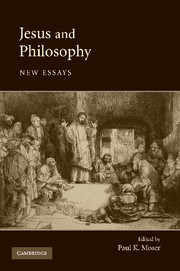5 - Jesus and Augustine
Published online by Cambridge University Press: 05 June 2012
Summary
Ludwig Wittgenstein opens his Philosophical Investigations with this quotation from Augustine's Confessions:
When they (my elders) named some object, and accordingly moved towards something, I saw this and I grasped that the thing was called by the sound they uttered when they meant to point it out. Their intention was shown by their bodily movements, as it were the natural language of all peoples: the expression of the fact, the play of the eyes, the movement of other parts of the body, and the tone of voice which expresses our state of mind in seeking, having, rejecting, or avoiding something. Thus, as I heard words repeatedly used in their proper places in various sentences, I gradually learnt to understand what objects they signified; and after I had trained my mouth to form these signs, I used them to express my own desires.
Wittgenstein takes this picture of learning a language by “ostension,” that is, by having the teacher point to the objects that the words in that language refer to, as a target for philosophical criticism. He offers several criticisms of this picture. At one point he makes this comment:
Augustine describes the learning of human language as if the child came into a strange country and did not understand the language of the country; that is, as if it already had a language, only not this one. Or again: as if the child could already think, only not yet speak. And “think” would here mean something like “talk to itself”.
- Type
- Chapter
- Information
- Jesus and PhilosophyNew Essays, pp. 109 - 123Publisher: Cambridge University PressPrint publication year: 2008



